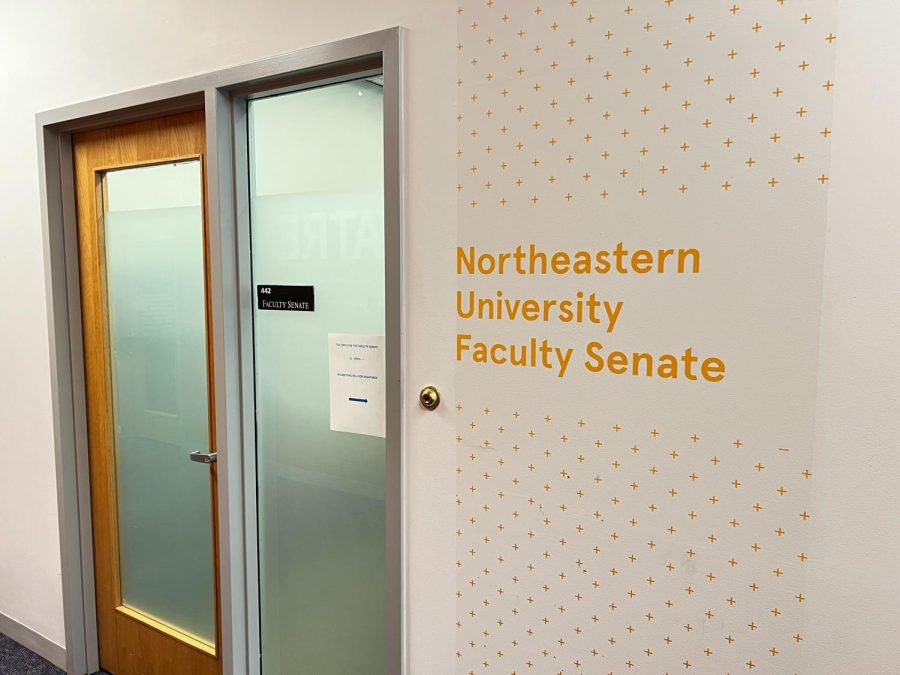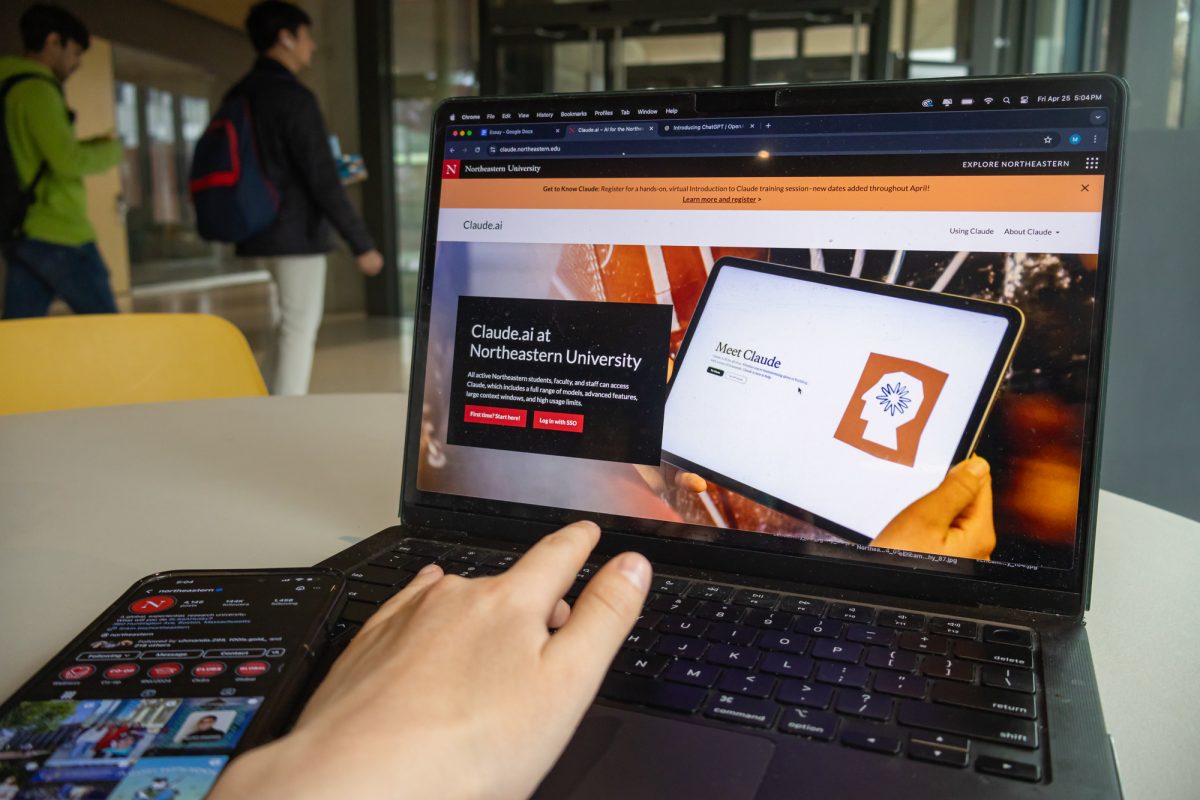President Aoun gives annual address at faculty senate meeting, discusses global network, mergers, acquisitions
The Northeastern Faculty Senate office, located in Ryder Hall. President Aoun told the Faculty Senate that Northeastern’s global network will only continue to expand.
September 30, 2022
The university’s faculty senate held its biweekly meeting Sept. 28, with President Joseph E. Aoun delivering his annual address to the body of senators from Northeastern’s academic colleges.
Prior to Aoun’s speech, Provost and Senior Vice President for Academic Affairs David Madigan spoke to faculty senate members to discuss the establishment of Northeastern University – London, at the site of the New College of the Humanities in London, England. Northeastern was granted University status in July, which left questions as to how degrees and curricula would transfer for existing and future students.
“There’s been a huge amount of process in aligning the existing degrees there with our degrees,” Madigan said. “Under certain circumstances, you will have both a UK degree and a U.S. degree.”
This update aligned with much of the content of Aoun’s address, which frequently mentioned Northeastern’s global network of campuses. He also acknowledged the growing demand for acquisitions and mergers in higher education as universities struggle to set themselves apart from other institutions.
“We are receiving various requests from other institutions to merge with us,” Aoun said. “When we look at mergers, we are looking at a partnership … so we have been very selective.”
What sets Northeastern apart, Aoun said, is the Northeastern brand and new strategic plan: “Experience Unleashed.”
“The families are looking for a brand, for differentiation, for values,” Aoun said. “[Our] differentiation is built first on the fact that we are experiential. That is our DNA, that is something that is very much in-demand, and the students see value in that.”
Aoun also identified the 13 campuses that make up Northeastern’s global network as part of Northeastern’s unique opportunities.
“We are also a global university. We are seeing that this is an important factor in attracting students here. We are building a global university system,” Aoun said. “The students are going to be attracted to that because they can spend a year at Mills, a year at London, and a year at Boston, with more to come.”
Some of the opportunities that Northeastern provides are distinct to each campus, Aoun said
“We are the only U.S. university that can provide two degrees: one in the UK, one in the U.S.,” Aoun said. “London is a global pathway to the world. We are going to focus on global opportunities for our students there.”
Aoun said Mills College at Northeastern University, whose merger was officially completed this July following months of pushback and litigation from alumni and students, will focus on “experiential entrepreneurship.”
“All students [at Mills College]… are going to have the opportunity to partake in experiential entrepreneurship. Whether it’s social entrepreneurship or for-profit entrepreneurship,” Aoun said.
In addition to making global learning more accessible, Aoun said the global university system allows for different education frameworks to be tested on different campuses.
“We constantly are looking for relevance, we constantly are looking for impact, and the campuses are giving us opportunities … to provide this innovation, to provide this impact,” Aoun said. “Ultimately, what we are seeking altogether is to further our leadership and further our impact.”
One model that is here to stay, Aoun said, is the residential model.
“The residential model has been reaffirmed during COVID,” Aoun said. “Students, even when their colleges were closed … recreated a kind of residential model on their own.
Denise Spencer, elected senator for D’Amore-McKim School of Business and principal lecturer in supply chain & information management, asked Aoun how Northeastern was responding to nationwide inflation and its effects on the cost of living for faculty, specifically regarding salary raises.
Aoun dove into some of the impacts of inflation on the entire university.
“Inflation is bad for higher education at all levels. For our students, … for our operations, … for our salaries,” Aoun said. “We are way better positioned than [other] universities overall, so if you compare us to what happened at other universities … we are faring better, but that’s not enough.”
Aoun emphasized that the university acknowledges the problem of inflation and is actively working to address it.
“We are trying here to be candid and direct with you about it. We are trying to further what we can do at all these levels, but clearly it’s a challenge,” Aoun said. “We have to work together, we have to ensure that we are tuition-independent, we have to ensure that we are attractive to the students, but that’s a challenge.”
Paul Chiou, elected senator for D’Amore-McKim School of Business and associate teaching professor of finance, asked Aoun if, in the face of growing tensions between the United States and China, the university has a plan to diversify the source of international students.
“We need to continue to diversify … at the domestic level and the international level,” Aoun said. “We will continue to be a welcoming university system for all students all over the world.”
One message came through clearly to the faculty senate: Aoun wants the Northeastern University global network to be a trailblazer in the world of higher education.
“What we are doing [with our undergraduate students] is unique, impactful, and in-demand,” Aoun said. “We are, overall, building the future of not only Northeastern, but of higher education.”







